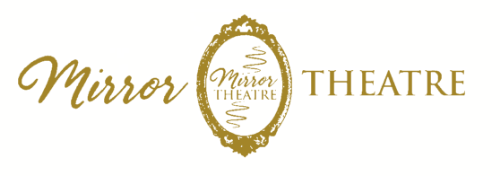Cultural Humility/Implicit Bias (2022)
Description
The following vignettes are taken from a variety of Mirror Theatre’s productions. Reassembled here, they address issues of understanding and respecting “the Other”. We ask, “How do we judge each other in inappropriate ways? How can we truly teach/help without imposing our value system on others? How labeling can be a form of discrimination? and How do we respectfully meet/greet people for the first time?”
Scenes
Who Do You Want to Work With?
Questions: How do you judge people? Do you agree with the narrator’s judgments? What judgements would you make? Why?
How Can I Help You?
Questions: How do we judge people by their tone of voice? Listen to the voices and pay attention to your interpretations. What do they say about them? What do they say about us?
Who Would You be More Comfortable With?
How do we judge people by their tone of voice? Listen to the voices and pay attention to your interpretations. Who would you be more comfortable with as: your doctor, teacher, parent, boss, colleague, computer repair person etc. Does this change? What do they say about them? What do they say about us.
What's in a Title?
Questions: What assumptions do we make about gender, marital status, age, employment and positions of power in how we address them? What current administrative practices do no accommodate differences? Should they? How do we respond is we make such a faux pas? How do we respond if we notice one in others?
Donation
Questions: What are the reasons to and not to donate? How much is too much? Why?
Labels
Questions: How do our descriptors limit others?
Role Call
Questions: Do you believe that the instructor was out of line? How? Do you believe that he was aware that his behaviour could be considered offensive? What might the inner thoughts of other students be? How might he be confronted? What are the pros and cons?
But I'm a Good Person
Questions: What is good? Who holds the power in this scene? How could this change?
Missed Interpretation
Questions: What could be the inner thought of the person misidentified be? How might the the character rescue herself after the faux pas? What might she have done toe to prevent it? What might each of them say to a friend, colleague or partner after this experience?
Better?
Questions: 1) The ‘sculpted’ people eventually challenge the ‘sculptor’. asking, “Better for whom?” Is ‘fixing’ a form of controlling? Is helping? Is teaching? 3) How could some of our behaviours be considered more an act of controlling than assistance? Post Workshop: Building upon what you have learned from this workshop, verbally sculpt someone in you perspective of good/better, explaining and adjusting your thoughts as you go.
Walk of Shame
Questions: Imagine if this is what you experienced when walking down the street on a daily basis. How can your reactions negatively affect others?
Meet and Greet
Questions: We meet and greet people in a variety of ways? In what ways could greetings be disrespectful
First Encounter
Questions: 1) Even best intentions may not result in the desired effect. How can we make people feel welcome who are new to our midst? 2) Like Goldilocks, first encounters might be too strong and too weak, before we find what might be just right. Find a friend or classmate and explore, through improvisation, what might be a possible way of approaching someone for the first time.
Conflicting Perspectives/NIMBY
Questions: 1) Given what you have watched, how would you respond to the characters’ comments in this scene? 2) Both the Board and the neighbourhood groups seemed to be unified in purpose. This is not always the case. What might dissenting perspectives in each group be? How would the larger group respond?
